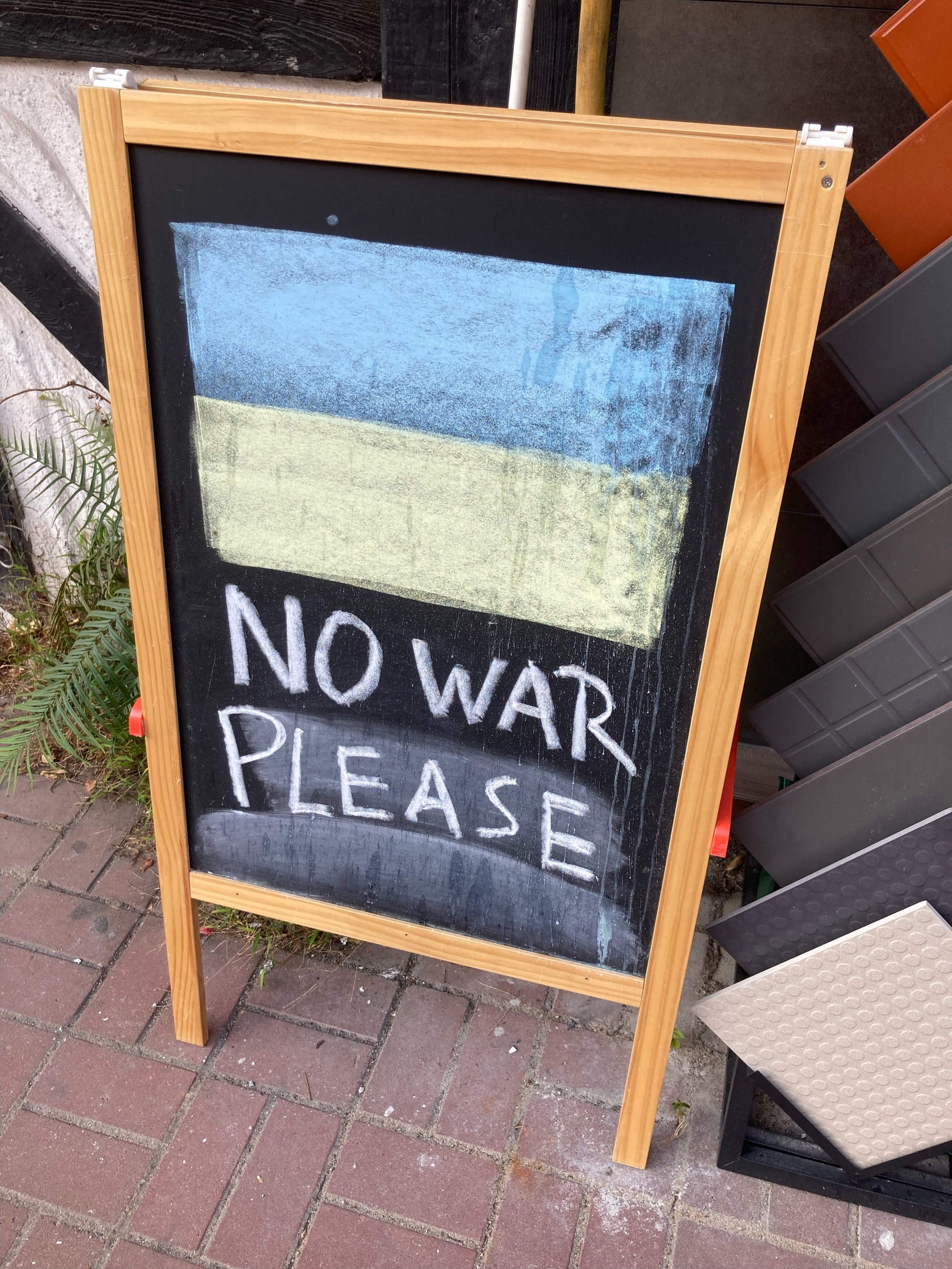How the War in Ukraine Affects the Hotel Industry in Europe
With Europe's tourism economy just beginning to recover following the tumultuous years of the Covid-19 pandemic, it is facing a new obstacle: the war in Ukraine. But what does it mean for Hotel Owners and Investors?
Russia's invasion has had a devastating humanitarian impact on Ukraine, and the effects ripple across borders. But how far will the impact of this military invasion go? And how will the war in Ukraine affect the hotel industry and tourism in Europe?
For hotel owners and others in the hospitality industry, these are looming questions with potentially serious consequences.
How do military conflicts affect tourism?
Good climate, accessibility, historical sites: All factors that encourage a healthy tourism climate. And on top of the list of things that hurt tourism: war. This is especially devastating for Europe, where tourism accounts for 10% of its GDP.
Historically, war and other violent conflicts are obvious reasons tourists have stayed away. But how close is too close for vacationers?
One study found that, concerning tourism, military conflict "has far-reaching effects that go beyond simple geographical proximity to the conflict." Meaning, even if a country is not directly involved in conflict or close to the conflict, tourists' perception of proximity is enough to deter their plans.
Companies are rapidly pulling out of Russia
McDonald, Siemens, and Starbucks are among the biggest players in closing their operations in Russia. Companies in the hospitality sector are doing the same.
Airbnb and Booking Holdings have suspended bookings, Marriott has closed its offices, and hotel powerhouses Hilton, Accor, and Hyatt have suspended all future investments.
As large hotel chains and tourism companies brace for what is to come, smaller hotel groups should closely watch how they could be affected. Fewer options, from dining to tourist attractions, will have a negative impact on demand for travel in the region.
How the war in Ukraine will affect the hotel industry in Europe
According to a new study by the Economist Intelligence Unit (EUI), “sanctions on Russia, high inflation, and the loss of Russian and Ukrainian visitors have forced it to downgrade its European tourism forecasts for 2023."
Since Ukraine closed its airspace to civilian flights, surrounding countries have felt the blow. Several airlines have canceled flights to the region, including TUI fly Belgium which pulled all flights to Bulgaria until the end of June and all flights to North Macedonia for the summer. Demand for flights to popular eastern Europe destinations like Prague has also taken a hit.
For now, the conflict in Ukraine has a "limited impact" on Western EU countries, according to travel experts. This, however, remains subject to change.
At the time this article was written, the most western point of Russian control in Ukraine is the city of Kherson, nearing Mykolaiv. If advances continue in the West, we can expect more significant impacts on travel in Western European countries.
Let's take a look at how the war impacts tourism and hospitality in Europe.
Loss of Russian and Ukrainian tourists
As of 2020, Russians and Ukrainians made up 3% of global spending on international travel. The World Tourism Organization estimates that taking these players out of the worldwide tourism market could result in losses up to USD 14 billion (EUR 13.4 billion).
The following chart shows where the lack of Russian tourists would be most strongly felt.
Other tourist groups already deterred
For hotel and hospitality companies, consumer fears drive corporate fears.
Dermot Crowley, chief executive of Irish hotel group Dalata, commented to the Financial Times that fears over the Russian invasion of Ukraine "may make North Americans nervous about coming to Europe."
In the same vein, travel marketing company MMGY reports that "62% of U.S. travelers cited concerns about the war in Ukraine spreading to nearby countries as a factor impacting plans to travel to Europe." Notably, this is double the number of people who cited Covid-19-related concerns as a reason to reconsider travel.
The same survey found that 47% of U.S. travelers are waiting to see how the conflict plays out before planning a trip to Europe this year.
Below is a chart from the World Tourism Organization that shows the European countries with the highest number of canceled flights between late February and April.
Oil and inflation
In 2021, two-fifths of gas and over a quarter of imported crude oil came from Russia. Suffice to say, the continent is highly dependent on Russian energy.
This dependency has caused the European Commission to release a gloomy economic forecast. With the ongoing war causing energy prices to soar and supply-chain-related issues to worsen, Europe's economy has a challenging road ahead.
Inflation reached the 7.5% mark in April, up 0.1% from March. This is bad news for consumers and business owners alike. If it costs more for hotels and other tourism industry companies to keep the lights on, travelers will feel the blow. Not to mention that it will cost them more to get there. Add in growing safety concerns, and we could see a dry tourist season.
How hotel owners can prepare
For European hotel owners, the conflict in Ukraine requires anticipation and maybe even action. Here are a few ways to brace your business as the war unfolds.
Remain alert but not rash
It's important to keep an eye on how the conflict progresses. Watch regional and national tourism numbers and notice the general attitudes of your guests. First-hand accounts are good predictions of where the rest of your clientele are with their travel plans. Follow the level of tensions through news on the military movements, sanctions packages and tone of voice of key decision makers.
If you start to notice alarming changes or drops in bookings due to safety concerns, it may be time to act.
Consider your options
It is the duty of business owners to predict worst-case scenarios and create possible solutions. Consider offering travel vouchers to allow concerned clients to rebook their stay in the future. This is a good way to keep their loyalty through trying times.
If Russian advances creep farther west or some other change in circumstances puts your business at risk, you may decide to sell. While this is not ideal, it is an option to consider as we navigate the ongoing climate. Selling may be the best option to protect your finances in a mutually beneficial way.
Titans RE
Titans RE is a Hotel Investment Agency based in Switzerland. We help to sell and buy hotel properties in the Swiss, European, and Mediterranean markets that are suitable for revitalizations and transformations into Senior Resorts, Assisted Living, and other Facilities with low regulation. We work with private equity funds, with family offices, hotel companies and project developers in Europe.
Our team can help you to navigate your strategy in today’s challenging environment.



